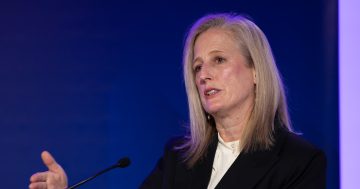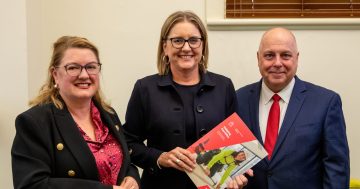Bianca Hartge-Hazelman* says new data has confirmed that women have been disproportionally affected by the economic impact of the COVID-19 pandemic.
 Women had the most to lose in a financial sense when the coronavirus hit in March as new data confirms the consequences of a lack of gender equality in Australian society.
Women had the most to lose in a financial sense when the coronavirus hit in March as new data confirms the consequences of a lack of gender equality in Australian society.
The latest snapshot of Australian life contained in the 2018 Household, Income and Labour Dynamics in Australia (HILDA) Survey reveals the segments of the population most exposed to the economic impact of COVID-19.
“Up until this year, it looked like we were making progress in terms of women’s participation in employment, there was some narrowing in the gender pay gap and in superannuation, but now we have seen women disproportionately adversely impacted by the pandemic and government shutdowns,” says Professor Roger Wilkins Deputy Director and report co-author at the Melbourne Institute.
“It raises real concerns to me about how much progress we lose because of that pandemic.”
Prior to the pandemic, it was more common for women to be in poverty in seven or more of the 10 years from 2001 to 2010 than it was to completely avoid it.
Similar to what is found for working-age people, older men were also less likely to experience poverty, and less likely to experience entrenched poverty, than older women.
The finding comes as monthly employment figures from the Australian Bureau of Statistics shows that young and older Australian women have been hardest hit by job cuts in female dominated industries since the pandemic-related government shutdowns affected industries like Retail and Food, Accommodation Services.
While ABS data shows that younger women have recovered faster than older women when it comes to regaining employment.
“People in households obtaining most of their income from hospitality, arts and recreation industries were the most vulnerable.
“Unfortunately, many of these people tended to have lower economic resources, and were relatively disadvantaged, even before the onset of the pandemic,” says Professor Wilkins.
The survey also shows that while Australians were feeling more prosperous then, women were happier than men despite a lingering gender pay gap.
The HILDA data shows that more women were working before the pandemic than ever before – 73 per cent, up from 64 per cent in 2001.
However the gender gap in average incomes remained significant in 2018, with men on average earning $1,542 each week, and women $1,098.
In the decade to 2018, women were more likely than men to be on some form of income support payment, particularly among those aged under 45.
This is likely to be at least partly due to women being a high proportion of single parents, the HILDA report says.
While wealth inequality increased until 2006, it has remained largely stable since, and income inequality has barely changed since 2001.
Despite women earning less than men and having more to lose leading into the pandemic, they were found to have greater life satisfaction.
Interestingly, those people who were married or widowed, and who were less educated, reported higher levels of satisfaction with their lives than those who were single and educated.
HILDA, conducted by the Melbourne Institute, is Australia’s only nationally representative longitudinal household study.
Approximately two million Australians live in households where the main income earner works in an industry most exposed to the pandemic recession.
People in these households are also more likely to be renters, have lower incomes and wealth, and are more likely to experience financial stress.
*Bianca Hartge-Hazelman is the author of the Financy Women’s Index and founder of women’s money website financy.com.au.
This article first appeared at au.finance.yahoo.com











